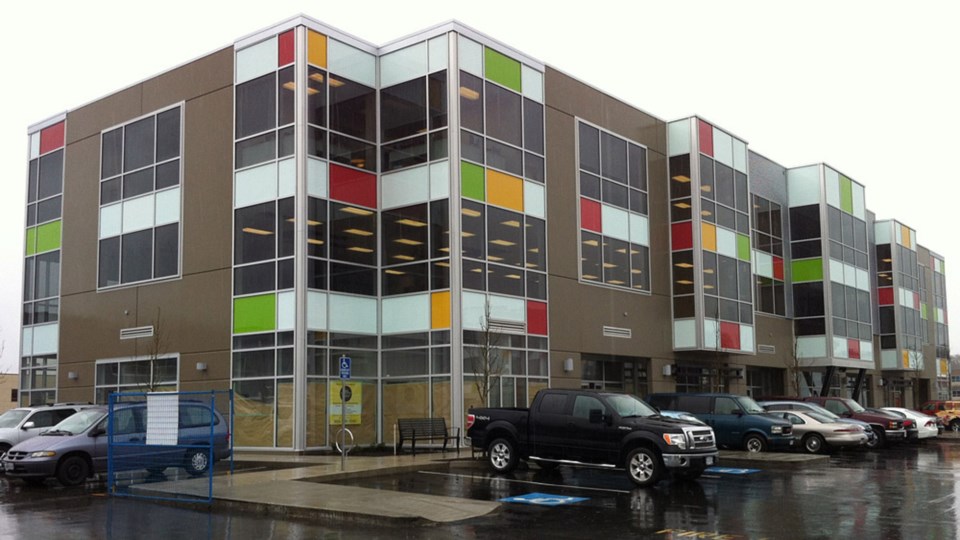A multi-year battle with WorkSafe BC is underscoring the need for vigilance, according to a Lower Mainland real estate investor.
Panorama Park Investments Ltd. is the bare trustee behind a multi-phase commercial development with nine buildings and 132,994 square feet in the Panorama area of Surrey. Built by a joint venture of seven partners, the project is tenanted primarily by office and retail businesses.
The project commenced construction in 2007. Soon after, WorkSafe BC began demanding Panorama Park owner Richard Coulter register the company and face assessments on its payroll – which, as a bare trustee, had none.
While all contractors and suppliers for the development had WorkSafe BC coverage, WorkSafe BC wanted Panorama Park itself to register.
“They kept harassing us in terms of registering,” Coulter said.
WorkSafe BC records indicate that it did so in November 2008, and was assigned to the classification unit for building contractors. But the seven partners in the joint venture did not register.
When Panorama Park took steps to renew financing for the project in 2019, a lien was discovered on title for $37,827.59.
“The lawyer called me and said, ‘We’ve got a problem here,’” he said.
WorkSafe BC documents indicate that the charge stemmed from an assumed payroll of $350,000 in each of 2014, 2015 and 2016. The payroll estimate reflected assumed payments of $50,000 to each of the joint venture’s seven partners.
“For a company that never has nor never will have a payroll this is a very large assumption,” Coulter said. “I did make several inquiries as to how the charge was calculated and I have never received a reply.”
WorkSafe BC documents indicate the estimates were made in lieu of financial documentation regarding payments to the joint venture partners from Panorama Park.
WorkSafe BC considers payments to affiliated companies that are not themselves registered entities as payroll. To avoid the charge, companies related to a bare trustee must register, which the partners in Panorama Park did in 2017.
Coulter paid to remove the lien and renew his mortgage, then immediately applied to have the funds returned and has continued to try and get the ongoing charges reversed.
This led to an interview with a WorkSafe BC auditor, where Coulter presented three years of financial statements and a contract with his property manager. The result was promising.
“He looks at me and says, ‘We’re going after the wrong company.’ I said, ‘I’ve been telling you that for years,’” he said.
In 2020, Coulter’s appeal was heard by the Workers Compensation Appeal Tribunal, which in a November 2022 decision sided with WorkSafe BC, noting that the joint venture partners should have been registered and that insufficient financial documentation had been provided to ensure a more accurate assessment.
WorkSafe BC would not say how many bare trusts and holding companies it assesses for premiums, and declined comment on specific cases without permission.
Instead, it referred to its practice directives on regarding bare trusts and holding companies, which state that holding companies are exempt and WorkSafeBC “will not register a corporation as an employer if the corporation does not have sufficient independence from other persons or entities,” noting that “a corporation does not have sufficient independence to warrant registration, if it is a bare trust; personal services corporation.”
Industry sources interviewed for this story know of no other holding company or bare trust assessed premiums by WorkSafe BC.
WorkSafe BC concluded its regular consultation on preliminary rates for premiums in the coming year on September 30.
Groups such as the Canadian Federation of Independent Business note that WorkSafe BC is adequately funded and is sitting on a $2 billion surplus that could be returned to small businesses. This is the second-largest surplus in Canada after Ontario. If surplus premiums were returned, CFIB estimates a B.C. company with five employees could be eligible for a rebate of $3,810.
Coulter, who employs no one and maintains he was charged inappropriately, believes companies need to keep a closer eye on how WorkSafe BC assesses them.
“As soon as they start making inquiries, do not hesitate to talk to them. Provide as much detail as you can, and as soon as you can, so WorkSafe BC does not use their imagination on your business,” he advised.



